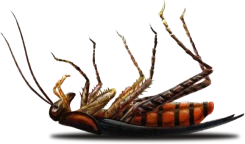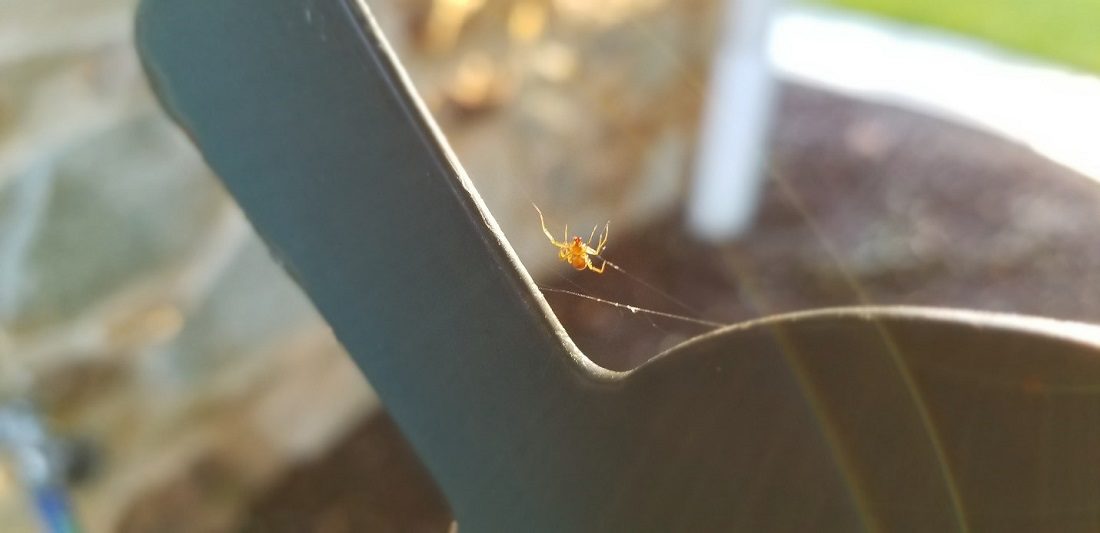Cornered: Spotting spiders in your home
Housekeeping is painful enough without encountering a spider clutching a hard-to-reach corner, waiting for dinner to blunder into an artfully crafted web. Armed with a spot of courage and a powerful Dyson, the easiest course of action is to vacuum up the eight-legged menace. Problem solved.
Or is it? The simple reason spiders lurk in our homes is because they provide spiders with the basic necessities – shelter, water and food. Food, of course, in the form of insects who are also making themselves comfortable in your home. Following this course to its logical conclusion, it stands to reason that if you have spiders you have other pests.
Spiders prefer a quiet place to spin their webs, imbued with a sensible desire to remain undisturbed while they wait for their prey. Corners provide a handy three-point surface to construct a solid net, but spiders can adapt to other areas where pests might be. Closets, garages, basements, attics, doorways and other pest highways are likely to attract a predatory spider. More adventurous spiders will build their webs high, an infuriating habit for homeowners with loft ceilings, hoping to trap a flying insect. If you find a spider-less web, it was likely abandoned by a hungry spider who moved to another, more promising hunting spot.
Complicating matters is the fact that not all spiders spin webs. Spiders that disdain the web method use their silk for other purposes, such as transportation (they can balloon to other locations with it), hiding places (a useful cover from which to leap onto unsuspecting prey) and molting platforms. These spiders may hunt in a more straightforward manner, ambushing their prey before injecting them with their venomous fangs.
While all spiders can bite and nearly all are venomous to a small or large degree, they rarely take on a human adversary. In fact, most spiders have fangs intended for small prey that are unable to penetrate human skin. In addition, spiders are simply not terribly aggressive – hence their bait-and-wait food strategy. For the most part, a spider will only bite if it feels harmed or threatened and the reaction to most spider bites is minor. Two significant exceptions are the black widow and brown recluse, which pose a distinct danger to people because of the potency of their venom.
Spider venom can be grouped into two classes, neurotoxic and necrotic. Black widows release neurotoxic venom which paralyses the nervous system, blocking nerve impulses to the muscles. Those who endure a black widow bite will likely experience muscle spasms, cramping and paralysis of the diaphragm. In very rare cases, death may occur. Brown recluse spiders release necrotic toxins causes the tissues around the bite site to die as the immune system attempts to stem the spread of the toxin by limiting blood flow to the punctured area. Inflammation and blackening of the skin is common, leading to slight or significant skin loss. A brown recluse bite can, in rare cases, be fatal if the victim develops a systemic reaction to the toxin.
Fortunately for everyone, most spiders are not as formidable as the black widow and brown recluse. Ambitious scientists have identified over 43,500 species of spiders worldwide, occupying every continent with the exception of Antarctica which, to be fair, tolerates very few intruders. But it is very possible that those engaged in the meticulous business of spider spotting may have missed some along the way.
Harmful or not, most of us prefer a spider-free home. Their cluttered webs, fecal spotting, and littered prey can become an unsightly nuisance and their presence is a good indication that pest control should be on the to-do list. Some effective spider control strategies include:
- Vacuum regularly to remove spiders and their webs. Be certain to destroy any egg sacs that you find quickly as they may contain hundreds of new spiders.
- Clean the house frequently to prevent pest infestations that support a spider population.
- Install screens and door sweeps to exclude spiders from the interior of your home.
- Eliminate clutter from areas such as the garage and basement and sweep the area frequently to eliminate harborage zones.
- Place glue boards in corners to monitor for pest activity and catch any spiders that may be hiding out in your home.
- Check out cracks, corners, attic and basement spaces with a strong flashlight to locate activity. Spiders may be hiding behind baseboards, above drop ceilings and around ducts.
- Reduce exterior conducive conditions, such as vegetation in proximity to the house and stacked firewood, to avoid attracting spiders and other general pests.
- Brush patio furniture with a firm bristled broom or brush to remove spiders and webs from the surface or vacuum with a shop vac.
- Have a Home Paramount technician regularly treat the exterior perimeter of your home to create a barrier to entry for spiders and other pests.
Home Paramount’s quarterly pest treatments are an easy way prevent an infestation or take care of an existing problem. Call us today to learn about spider control or to schedule a free home inspection.


Why Choose Us?
Providing Reliable Pest & Wildlife Solutions Since 1939
At Home Paramount Pest Control, we have been dedicated to delivering reliable pest and wildlife management solutions for over 80 years. Our long-standing presence in the industry speaks volumes about our commitment to excellence and customer satisfaction. When you trust our team, you can always count on:
- Customized solutions to suit your specific needs
- Same-day service availability for pest infestation emergencies
- High-quality green products that are safe for the environment
- Complimentary pest inspections
- Affordable financing solutions tailored to your budget
Call us at 888-888-4663 to get started with a free pest inspection for your property today!
Learn More


